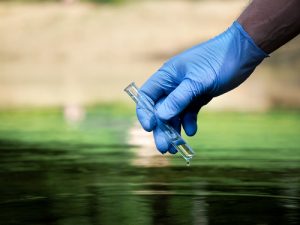
Protections for Americans and the environment from toxic per- and polyfluoroalkyl substances (PFAS) would be established under a bipartisan bill introduced on April 13 by U.S. Rep. Fred Upton (R-MI).
“PFAS contamination represents a clear and present danger to Michigan families,” Rep. Upton said. “This bipartisan legislation will ensure we’re treating PFAS as a hazardous chemical and giving our agencies the resources to clean up sites for the betterment of our communities.”
The congressman signed on as the lead original cosponsor of the PFAS Action Act, H.R. 2467 with bill sponsor U.S. Rep. Debbie Dingell (D-MI) and 25 other original cosponsors, including U.S. Rep. Brian Fitzpatrick (R-PA). The bill would require that the Environmental Protection Agency (EPA) designate PFAS as hazardous substances under the Comprehensive Environmental Response, Compensation, and Liability Act of 1980, according to the congressional record bill summary.
Doing so would permit the EPA to then clean up contaminated sites in Michigan and across the country, according to information provided by Rep. Upton’s office.
If enacted, H.R. 2467 also would establish a national drinking water standard for select PFAS chemicals, limit industrial discharges, require PFAS health testing, and provide $200 million annually to assist water utilities and wastewater treatment, among other provisions, the information states.
“Let’s be very clear, PFAS is an urgent public health and environmental threat. And the number of contamination sites nationwide is growing at an alarming rate, including our military bases,” said Rep. Dingell, noting that the bill “is a sweeping and comprehensive legislative package which has strong bipartisan support to address the PFAS crisis in the United States.”
The legislation has been endorsed by the Environmental Working Group, the Union of Concerned Scientists, Consumer Reports, the Green Science Policy Institute, the League of Conservation Voters, the Environmental Law and Policy Center, the National Wildlife Federation, the Natural Resources Defense Council, Food and Water Watch, Safer Chemicals, Healthy Families, and the Southern Environmental Law Center.



